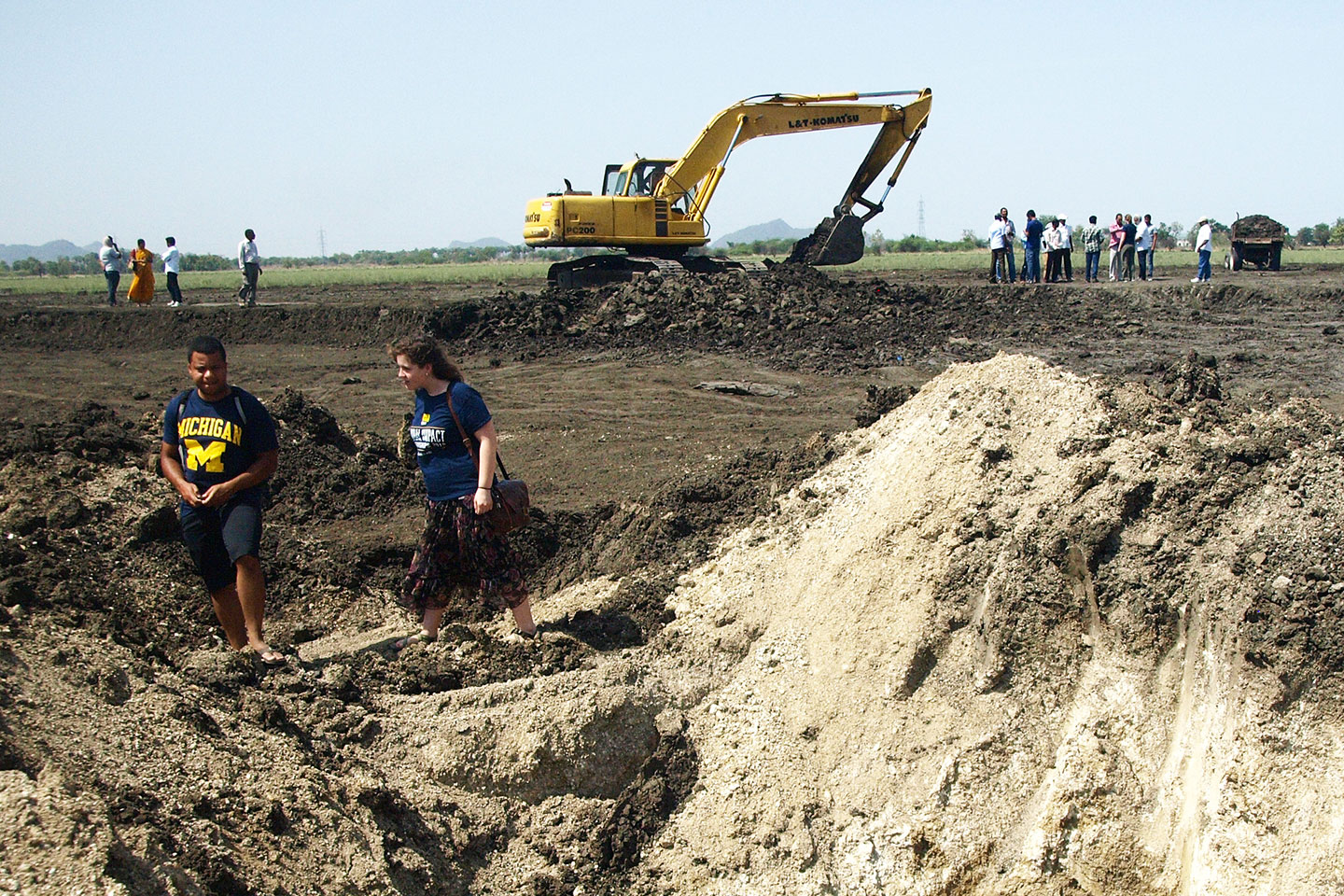De-silting Minor Irrigation Ponds in South India: The Sustainability of Decentralized Resource Distribution
De-silting Minor Irrigation Ponds in South India: The Sustainability of Decentralized Resource Distribution
De-silting Minor Irrigation Ponds in South India: The Sustainability of Decentralized Resource Distribution
Program: Dow Distinguished Awards
All Dow Distinguished Awards projects »

Spotlight on Improving Farming Practices, Soil and Water Quality
The team collected silt samples from 33 farm ponds to analyze the effects of de-silting on water capacity of the ponds and improving soil quality of fields where silt is applied. The analysis showed farmers, NGOs, and the government that the use of silt from these ponds provides nutrients and reduces fertilizer and pesticide consumption, and a 40-90 percent reduction in greenhouse gas emissions, increasing the viability of this method as a viable sustainable irrigation method. Completed: December 2014.
Team Members
Prof. Shelie Miller (SNRE), Adithya Dahagama (SNRE), Leon Espira (SPH), John Monnat (TCAUP)
Summary
We periodically encounter generational challenges that we as humankind must come together to solve. Now is such a time; when the planetary biosphere is under increasing stress and yet we are only starting to understand the interconnectivity inherent in the life-supporting processes which exist on the planet. By connecting the resources and cycles that are already present in the ecosphere, we aim to develop sustainable resource management techniques that both provide for us as a species and conserve the planetary biome as a whole.
In response to these challenges, the goal of our project is to marry the traditional with the modern by recycling a renewable resource within farming communities of Telangana state in India. Minor irrigation ponds are man-made banked earth structures used to store rainwater, and have been in use in Telangana for centuries. These ponds have to be de-silted to keep up their water storage capacity, with the silt being applied to agricultural land in place of artificial inputs (fertilizers and pesticides). We would engage with the FREEDOM Organization, a not-for-profit that over the past 8 years has helped provide silt for over 9000 acres of farmland held by 3800 subsistence farmers.
Together with FREEDOM, we will work on building an inclusive model of pond silt utilization to incorporate social, economic and ecological factors into its calculus. We plan to implement soil tests, for fertilizer viability and health concerns, and to meet with farmers to observe pre and post silt application effects on social mobility, village life, and hydrologic effects. We also seek to involve all layers of government as we work with FREEDOM to develop an actionable system of pond silt utilization that is not only sustainable, both agriculturally and ecologically, but would also tap into global market mechanisms to maximize stakeholder benefits.